TRANSCRIPTION
What did you do for fun when you were younger?
For fun, just work, work.
Do you recall what age you were when you started horseback riding?
About eleven, ten, eleven. That was during the rodeo. They had them trail rides that you'd go off all the way to Laredo and you'd ride all weekend long and then you'd ride all the way from Laredo to San Antonio. It took a whole week. Just for the fun of it. A bunch of us get together and wed all go, it'd be a hundred fifty, two hundred riders. Well they still do it but not, no, not too many people do it no more.
Where did you buy groceries or clothes when you were younger and how is it similar and different to now?
Well it's a whole lot higher now. Them tennies that came out, the black and white ones, were real expensive here a couple years ago. They came back. They were four, five dollars a pair. It's completely different. The prices, the food. You could go to the grocery store with five dollars and bring sodas and Fritos, a loaf of bread, tomatoes, to make sandwiches stuff like that. And a dollar lunch feed. For three to four dollars, five dollars you know. They didn't have no H.E.B's then. No just a regular little store like at convenient stores.
Would you say there was discrimination or racism in San Antonio?
No I don't think so.
What are the biggest changes you remember about San Antonio from when you were younger to now?
Well the traffic and it's so big. You know, really grown a bunch. Back then they didn't have no all them expressways you know that go under and over and shoot you all over town. Nah, it was just one main street. [It's] really grown.
Could you tell me about the different jobs you've had?
Well I drove a truck for a while for about five years. Oh and the big dairies. And I would work at night and during the day I would mess with some horses. Train horses.
What was it like working for E.R. Bailey?
Oh that was, he was the car lot man; he had a bunch of car lots here in town, and he owned a bunch of horses. So he hired be to go off to the big tracks with him. Louisiana and Colorado and we went to St. Illinois. Different tracks, different towns.
What's your best memory from horse training with E.R. Bailey?
When I took a picture with Patsy Cline. And I never did get the picture, and then she got killed in a plane crash. She was a western singer. She was a big star, and she happened to be at the track that day, and she told the manager of the track that she was willing to take a picture with everybody, anybody that'd win a race, shed go in and take a picture with. So it was real nice and everybody... We won a race and she was in the picture.
What was your life, or life in general, like after you returned from Louisiana?
Well every time we come back, you know we would stay gone for six, seven months. Every time we come back everything was changing; you know it grew so fast! The expressways and you know everything. It changed so much.
Could you tell me about one of your fondest memories with Thundering Tina?
Oh wow well we won all them big races with her. She made the horse of the year here in Texas like in the 80's… eighty something. I don't remember. At the track they gave her a ceremony, in Bandera…Bandera Downs.
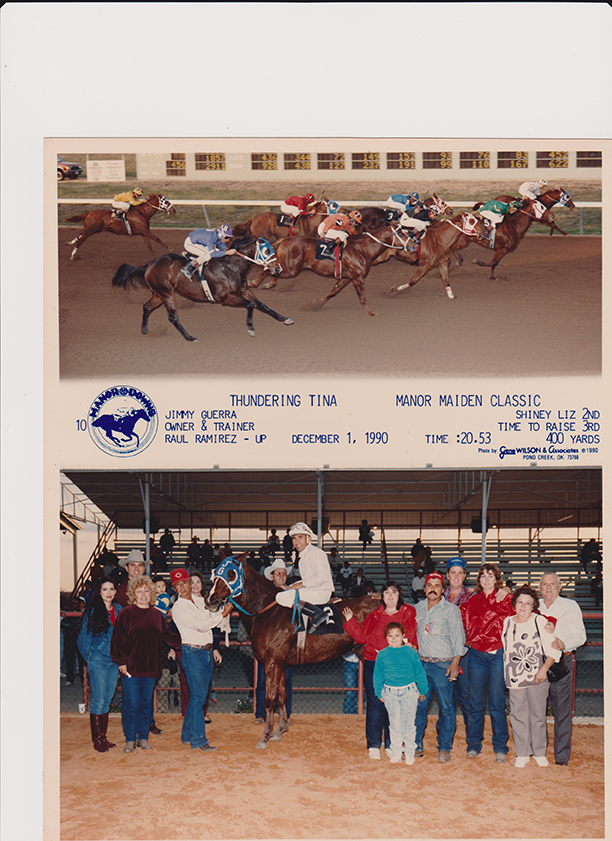
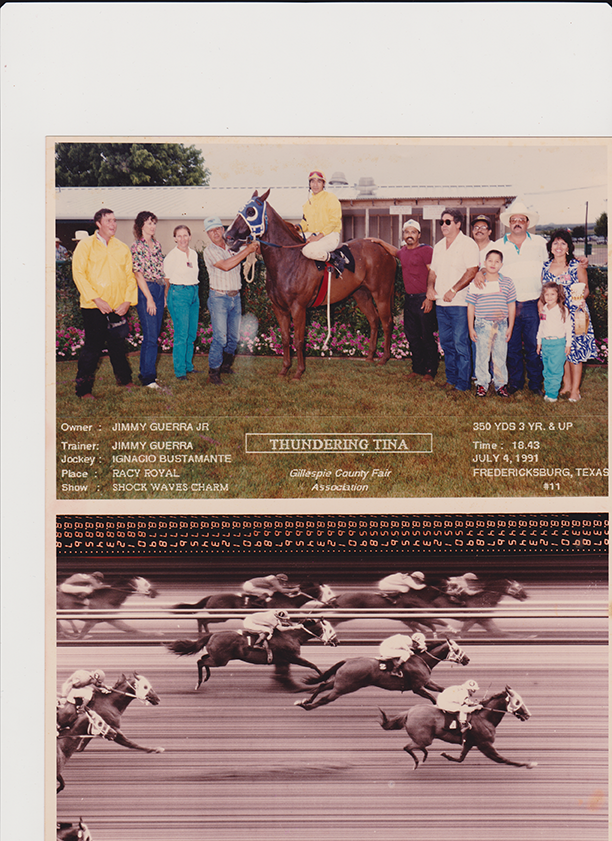
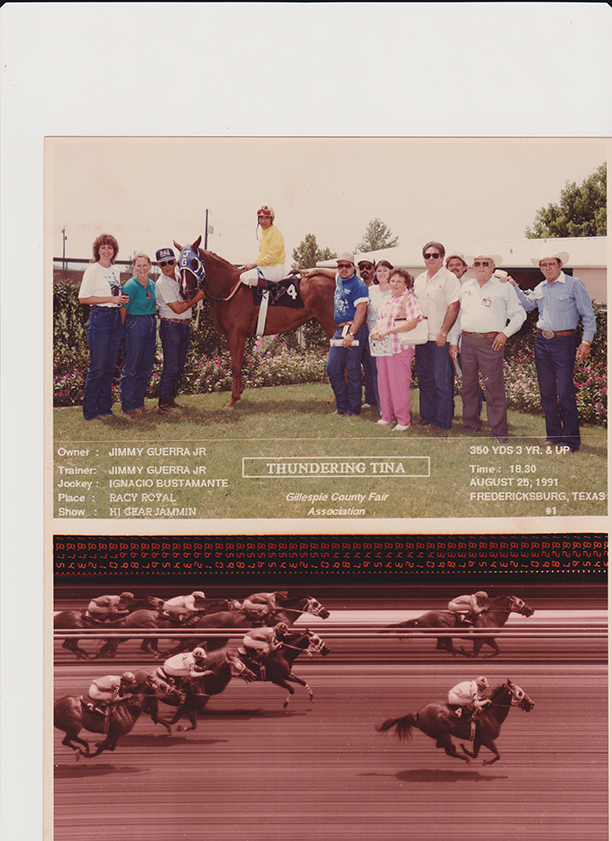
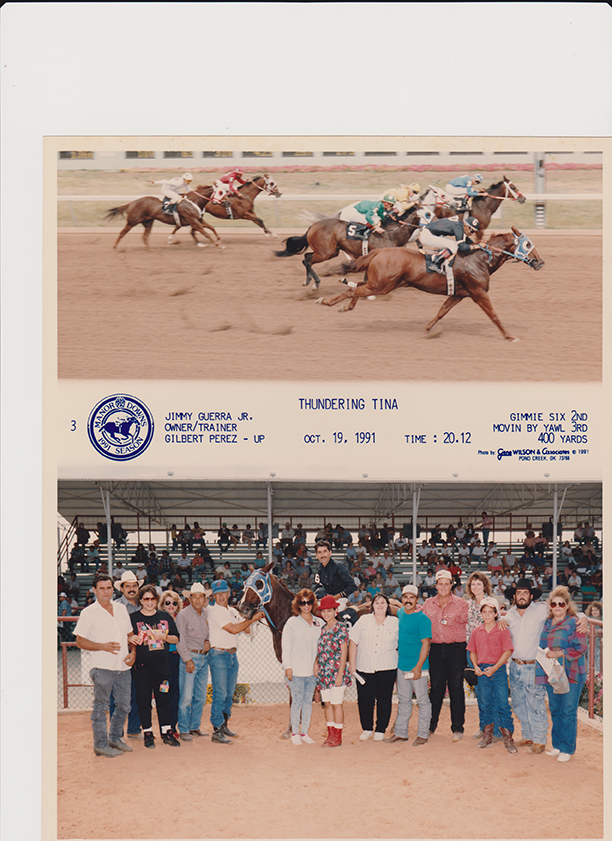
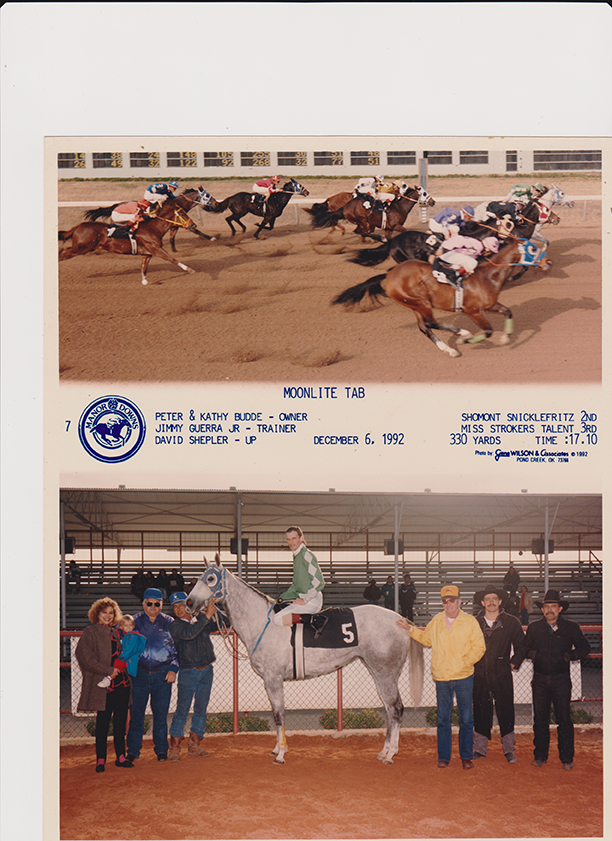
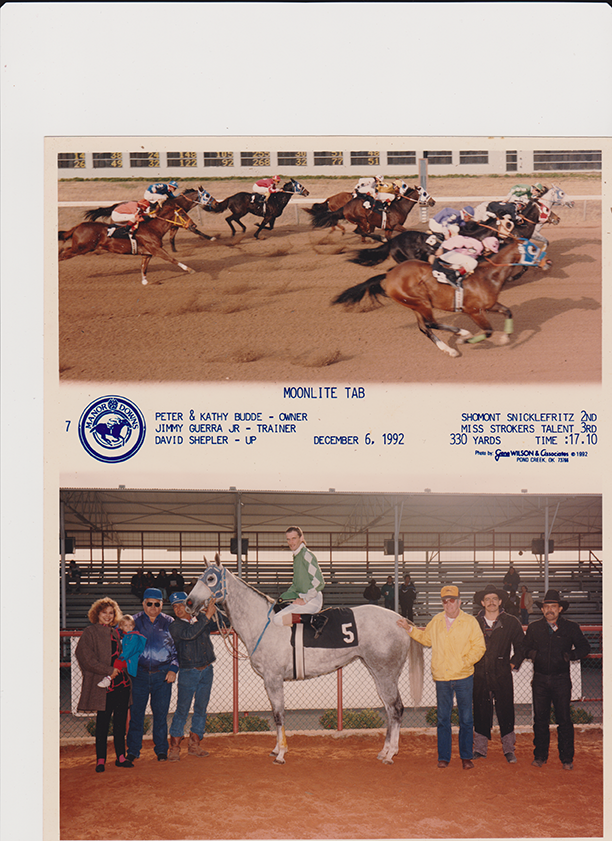
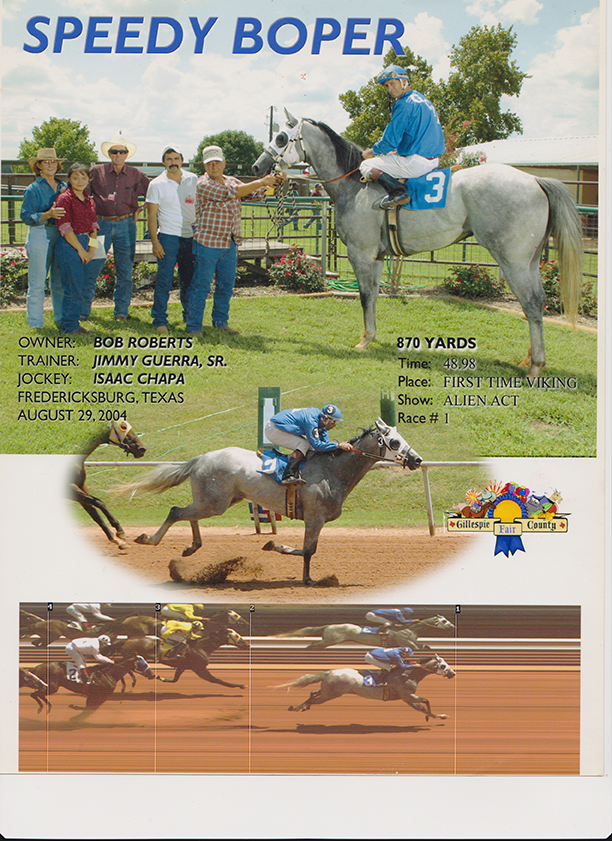
Did you witness any constructional changes while you were a truck driver?
Well here when they built the tower, the Tower of the Americas. That took them forever though. A long time to [build]. Back then the River walk wasn't as populated.
How has San Antonio changed in your opinion, if any?
A whole bunch in every way. You know, highways, expressways, going through it and then 1604 goes all the way around it, and everything, big changes. [There's] more people. As it grows you know more people more people.
What do you think about the economic changes?
Hijole it's terrible now. Everything's so expensive. Well the gas prices right now is good but for how long? That's the thing, you never know, and when they jump it takes and keeps on jumping and jumping and jumping going higher and higher and higher. There ain't nothing people can do. The minimum wage has changed a little bit, but not that much. Oh when I was a teenager the gas was twelve, thirteen cents a gallon; look at all the difference. Cigarettes twenty-three, twenty-four cents a pack, now it's almost seven [dollars]; that's a big jump. I bought a brand new truck in sixty for twenty-seven hundred dollars, and it was top of the line you know. Right now twenty-seven hundred ain't nothing you know.
Is there anything else you would like to add to the interview?
No, not really.

